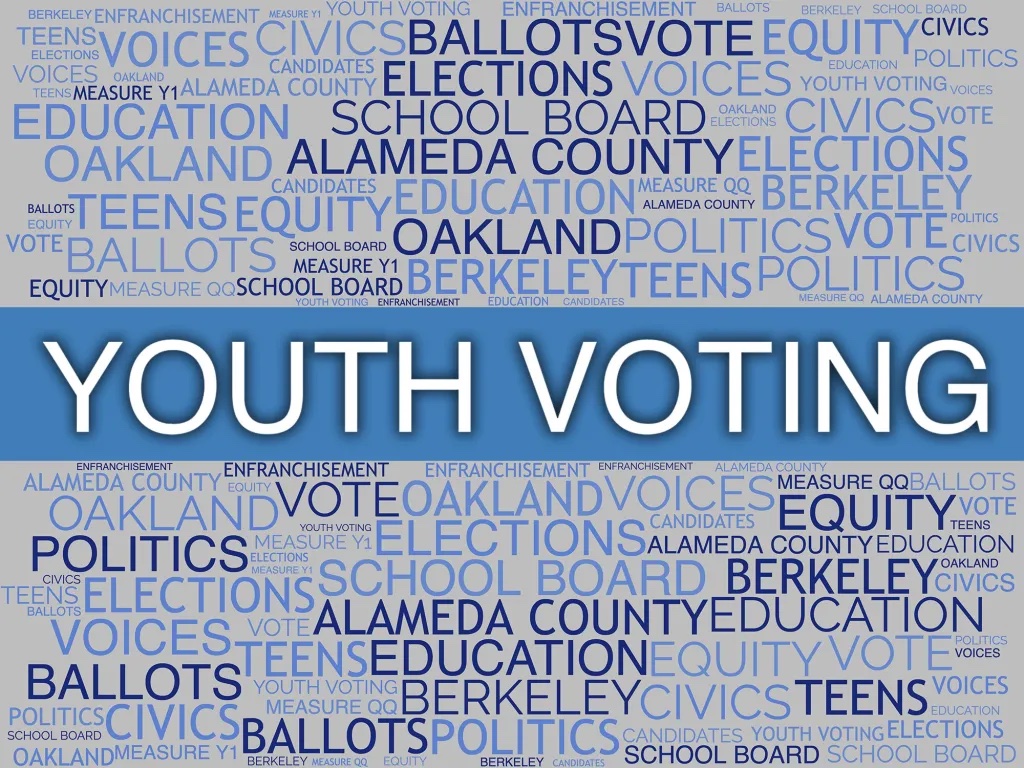The Alameda County Board of Supervisors has approved the final agreement allowing 16- and 17-year-olds to cast ballots in Oakland and Berkeley school board elections, but it is unclear if it can be implemented in time for the November ballots.
Tuesday’s vote codifies agreements between the county, the registrar of voters, Oakland, Berkeley and the Berkeley Unified School District that spell out funding and implementation responsibilities.
In April, supervisors voted to approve a $113,000 contract increase with a third-party election services company, among other things, with an eye to implementing Oakland’s Measure QQ, which voters approved in 2020, and Berkeley’s Measure Y1, which passed in 2016.
Tuesday’s vote paves the way for BUSD and Oakland to reimburse the registrar for costs associated with setting up the youth vote system and for ongoing costs associated with running the elections, which are expected to be somewhere between $19 and $21 per voter.
The agreements also protect the county from certain types of lawsuits aimed at preventing youth voting.
Supporters speak out
Before the vote, several people spoke in favor of the plan, some of whom are high school and college students who have been working to get it off the ground for years.
“I am an Oakland resident and Oakland High alumni entering my second year of college and I have been working on Measure QQ from the very beginning and I’m hopeful of how far we’ve come,” said Allyson Chen.
“I appreciate your commitment thus far to advancing Measure QQ and Berkeley’s Measure Y1, allowing 16 -and 17-year-olds to finally vote in local school board elections this November after years of advocacy and effort,” Chen said.

Sam Davis, board president of the Oakland Unified School District, also urged the supervisors to approve the agreements and said the plan might add 10,000 high school juniors and seniors to the voter rolls.
“We don’t expect this to be a massive number of voters,” Davis said. “If we get to 2,000 per election that will be great, but it will be very, very significant across the country when we see so many other jurisdictions restricting the right to vote for disenfranchised communities, that here in Alameda County, or in Oakland and Berkeley, we’re expanding the franchise.”
Still, it is unclear if the necessary preparations can happen in time for the November election.
Implementation ‘not technically feasible’
Registrar of Voters Tim Dupuis said in an email last Friday that his office continues to work through various issues, including testing the computer code that will allow him to administer the youth vote in future elections.
On Tuesday, he told the supervisors that it is currently “not technically feasible to implement youth voting.”
“We’re continuing to work with our vendor, but as of today, we are not technically feasible based upon the requirements that we’ve been given by the jurisdictions,” Dupuis said.
This drew a heated rebuke from Supervisor Keith Carson, who pointed out that the county has had eight years to come up with a way to make youth voting happen.
“We had eight years to prepare for this. I don’t accept the fact that we’re not ready to implement this.”
Supervisor Keith Carson
Supervisor Keith Carson
He also noted that large majorities of voters in Berkeley — 70.3 percent — and Oakland — nearly 68 percent — voted to approve youth voting and have been waiting for years for implementation.
Also, in 2023, the board voted to direct Dupuis to implement the plan in the next election, which has since come and gone.
“We had eight years to prepare for this. I don’t accept the fact that we’re not ready to implement this,” Carson said. “I question whether or not, you know, a department head that knew it was coming, you know, adequately is addressing their job in a fundamental way.”
Supervisors ultimately voted 4 to 1 to approve the agreements, with Supervisor David Haubert abstaining after he questioned the legality of allowing people under 18 to vote.
The post Alameda County approves youth voting pact, but unclear if it will be in time for November appeared first on Local News Matters.
